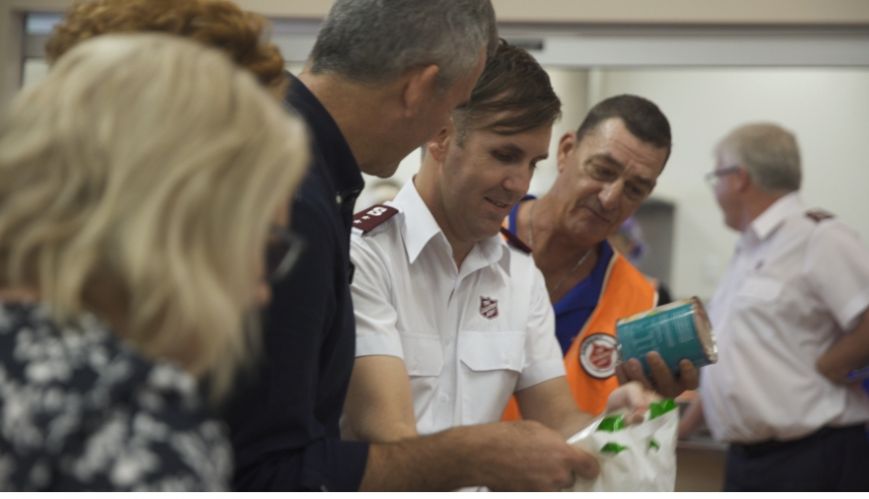Caring for the carers

Caring for the carers
8 February 2019
The Salvation Army’s Critical Incident Peer Support team are trained to support and guide personnel and volunteers through traumatic events.
They’re the team supporting the team. When a disaster or a critical incident occurs, Salvation Army personnel and volunteers swing into action, often putting others ahead of themselves. Others.org.au takes a look at the Critical Incident Peer Support team that rallies behind our people to support their wellbeing.
When the flood crisis hit Townsville, The Salvation Army’s Disaster Response teams swung into action. Local corps and Salvation Army Emergency Services crews were the first to mobilise.
As the flooding worsened, more crews were put on stand-by to activate from areas outside Townsville. Disaster recovery teams prepared themselves and even The Salvation Army Red Shield Defence Services personnel from as far as South Australia were called on to assist.
The group that flew in without much fanfare though, is one of the most important. It’s The Salvation Army’s Critical Incident Peer Support team; a group of trained officers, employees and Salvationist volunteers who are trained to support and guide our people through traumatic events.
“Their main role is to mitigate or reduce the severity of the impact of the critical incident and to accelerate the normal recovery period of people who have been exposed to some pretty unusual events,” says Territorial Critical Incident Peer Support (CIPS) Coordinator, Major Andrew Schofield.
CIPS personnel on the ground in Townsville are Bundaberg Corps Officer, Major Chris Millard, and Hervey Bay Corps Officer, Captain Aaron Reid.
“This team is about getting alongside our peers and making sure they are okay emotionally and finding out how we can best support them. It's having a coffee, a chat and seeing what they need,” says Major Millard. “It's letting them know we are here, that they are important and that we care about them and their wellbeing.”
Major Schofield says one of the key things about the CIPS team is that they are a listening ear for personnel and volunteers from outside of their current workspace. No notes are taken, and the conversations are confidential.
“We’ll get beside people and allow them to ventilate I guess, speak about their experiences, what they’ve seen, what they’ve heard, how that has affected them,” says Major Schofield. “We’ll also be able to help validate the way they feel.
“At a critical incident you see things and hear things which you don’t normally see and hear, so in this situation we’ll allow them to talk about that … and help them to realise that their actions, their reactions, the way they’re feeling are normal reactions to a very, very abnormal situation.”
Major Topher Holland is the General Manager of the Army’s Strategic Emergency and Disaster Management. He’s been in Townsville and has seen the incredible job that’s being done.
“Some of our people have come out and have sacrificed their own wellbeing - what’s happening in their own lives, their families … their own homes may be also inundated with water,” says Major Holland. “The peer support guys come in and they’re really the emotional support; to let our people know that The Salvation Army cares for them.”
CIPS team members are also trained to know how and when to refer people for professional counselling or suggest they may want to seek help from a doctor.
For Townsville Faithworks Corps Officer, Lieut Bron Lithgow, this past week has been both physically and emotionally exhausting. “Because the whole city is in this huge crisis – you can’t get away from it,” she says. “It’s really hard to turn your brain off. You go to bed, but you just can’t turn your brain off because everything’s just going a mile a minute.”
She says it was helpful for her and her husband, Lieut Perry Lithgow, to be offered some time out with Major Millard. “It’s good because it takes you away from the craziness for a little while and you can just sit and have a conversation.”
And of course, the team that supports the team also needs to look after itself. “We make sure there’s counselling available and a debriefing after a major critical incident,” says Major Schofield. “So, we’re not only looking after the people in Townsville, we also look after ourselves and our teams.”
Comments
No comments yet - be the first.